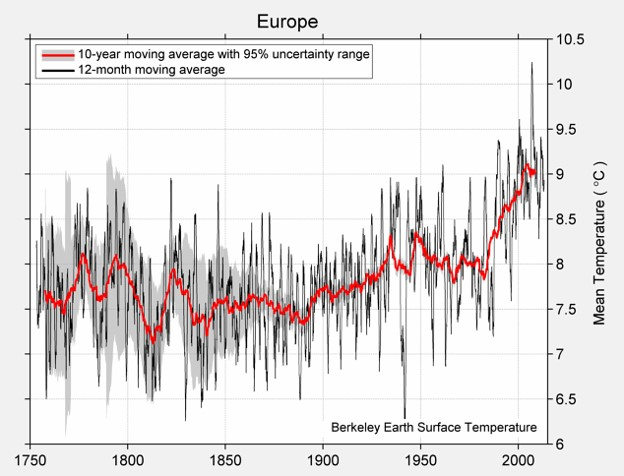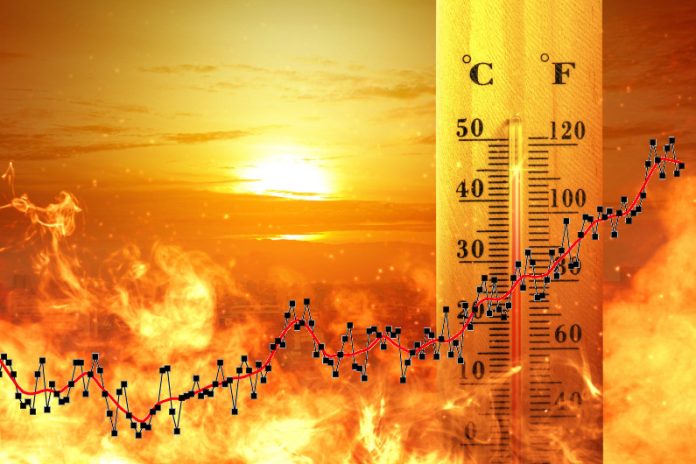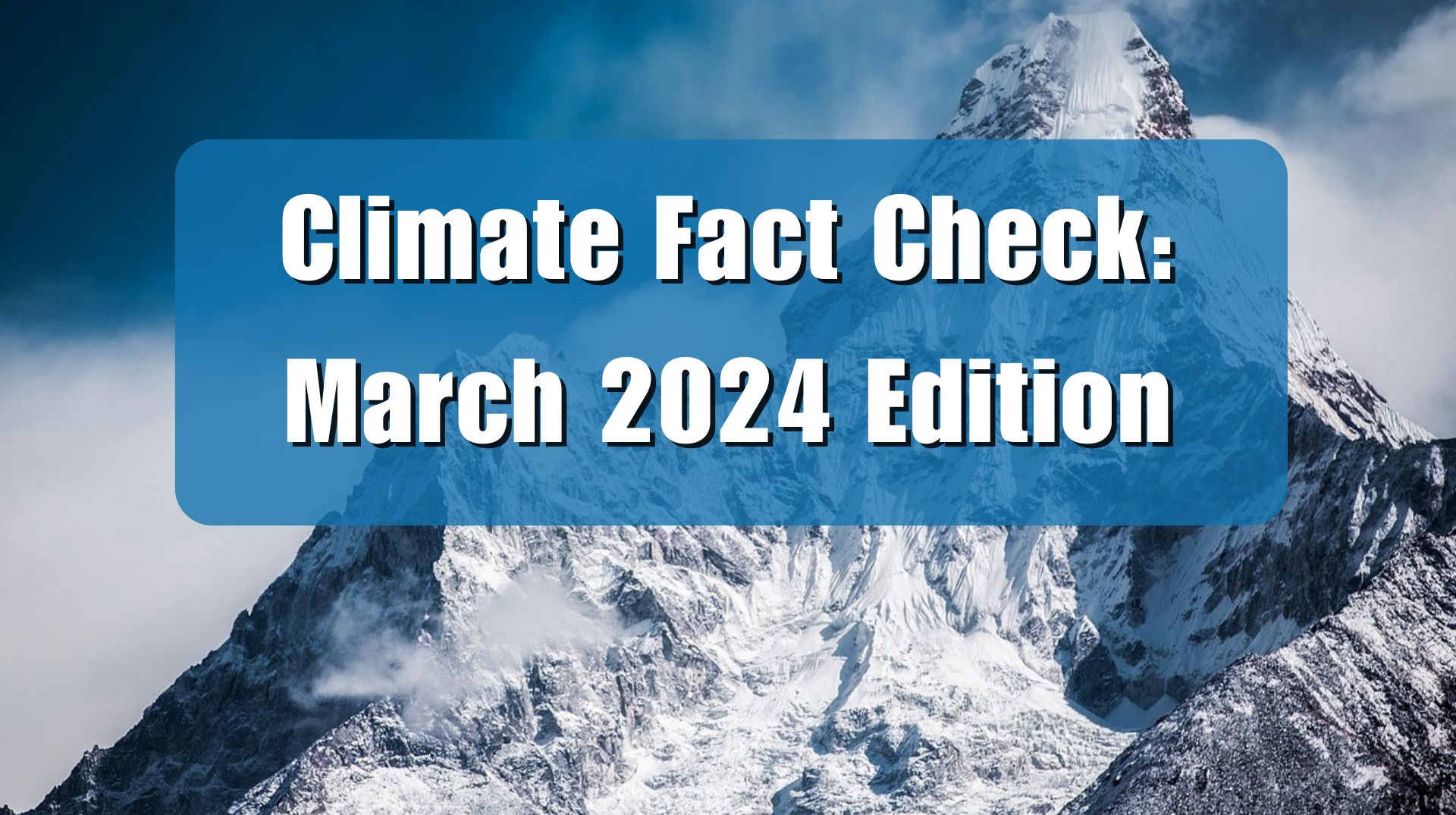As part of its COP 28 climate conference coverage USA Today ran an article claiming that preventing a 1.5℃ rise in global average temperatures above pre-industrial levels is a necessary climate threshold to prevent all manner of climate disasters. This is false. Both the 1.5℃ and 2.0℃ thresholds set in the Paris climate agreement in 2015, were established by politicians for political reasons. There is no scientific evidence that surpassing the 1.5℃ or even the 2.0℃ politically established threshold will result in worsening extreme weather events. Indeed, there is some evidence that the 1.5℃ threshold has already been surpassed with no discernable impact on weather extremes.
In USA Today’s article, “This number will shape Earth’s future as the climate changes. You’ll be hearing about it,” its author, Elizabeth Weise, writes:
There’s a looming threshold that will dictate the future of planet Earth. It could have cascading effects on how hot the planet gets, how much seas rise and how significantly normal daily life as we now know it will change.
The number is 2.7 degrees Fahrenheit.
World leaders at an annual gathering beginning Thursday will be spending considerable energy pondering that number, although they will use the Celsius version: 1.5 degrees.
Representatives and negotiators from 197 nations are gathering at an event called COP (Conference of the Parties) in the United Arab Emirates, a 13-day meeting that comes at what scientists say is a critical moment in the fight to keep the already dangerous effects of climate change from tipping over into the catastrophic.
Repeating a falsehood over and over again doesn’t make it true.
The truth is political negotiations, not some scientifically demonstrated need, is what established the 1.5℃ target and associated emission reduction goals. As explained in Climate at a Glance: Tipping Point – 1.5 Degrees Celsius Warming, science has not established a 1.5℃ as a threshold beyond which extreme weather will become more common or severe or because of which the earth will become uninhabitable.
Indeed, Europe possesses the best, longest-running temperature records on the planet, those temperature records show warming has already exceeded 1.5°C, as can be seen in the graphic below from Berkeley Earth.

Weise’s unsupported assertions to the contrary, as discussed at Climate at a Glance and in dozens of posts on Climate Realism, existing data refutes claims that the warming experienced so far, and that that can be reasonably expected in the coming century, has or will cause worsening weather or increased natural disasters.
The various projections of future harm resulting from rising greenhouse gas emissions pointed to by Weise and USA Today are not based real world data, but are generated by deeply flawed computer models that don’t portray past temperature trends or present temperatures accurately. Any person on the street, much less honest scientist, should ask, “if climate models don’t accurately reflect past or present climate conditions without constant “tuning,” why should we trust their projections for future climate conditions?” There is not even good correlation between greenhouse gas emissions and temperature trends in recent decades. Despite a relatively steady rise in carbon dioxide emissions since at least the 1940s, temperatures at times have fallen for decades, from the 1940s through the 1970s, for example, risen, and then for extended periods plateaued.
If carbon dioxide emissions are contributing to the ongoing rise in global average temperatures, the best evidence suggests that if the world hasn’t already surpassed the 1.5 temperature mark, it soon will based on a realistic assessment of global emission trajectories and the growth in energy use.
As such, if things change and temperatures do start exacerbating extreme weather, the best response is to prepare for and improve the world’s resilience and adaptive capacity in the face of extreme weather (a good goal regardless of climate change). This will require increasing global wealth and improving infrastructure, both of which require expanding the use of fossil fuels, not ending them prematurely. Wealthier societies and people are more resilient in the face of extreme weather events and other natural disasters. They anticipate them better, have stronger infrastructure, and better warning and emergency response systems, suffer fewer deaths, and recover from disasters more quickly than poorer nations and peoples.
That’s the story USA Today should be telling as political elites meet to discuss climate change in Dubai. Focusing on rapid development would do more to improve peoples’ living conditions and future prospects than trying to prevent a small additional rise in global average temperatures, in a vain attempt to control the weather 100 years from now.
















